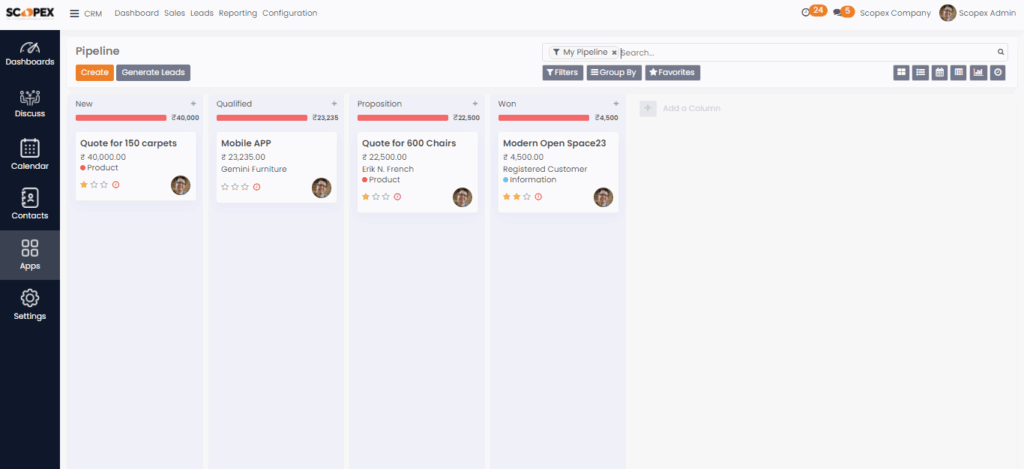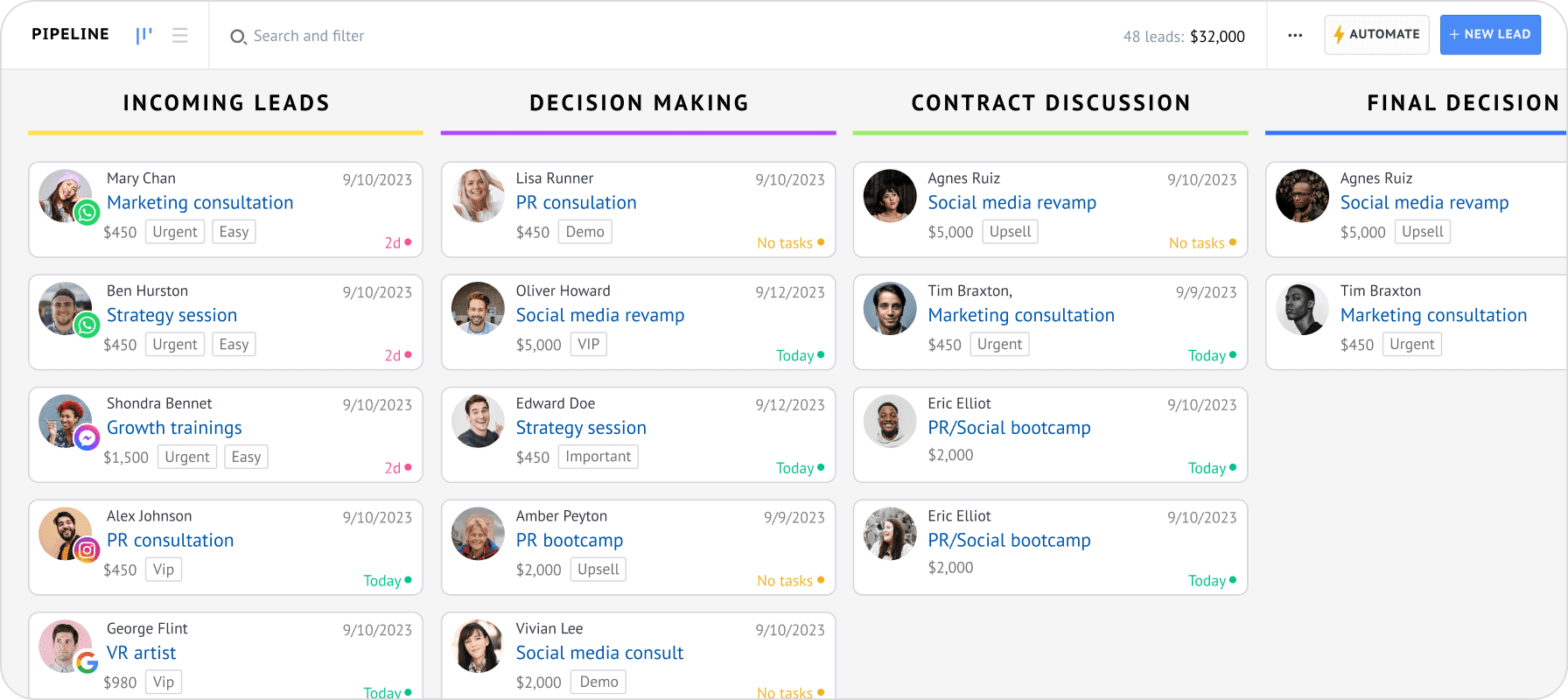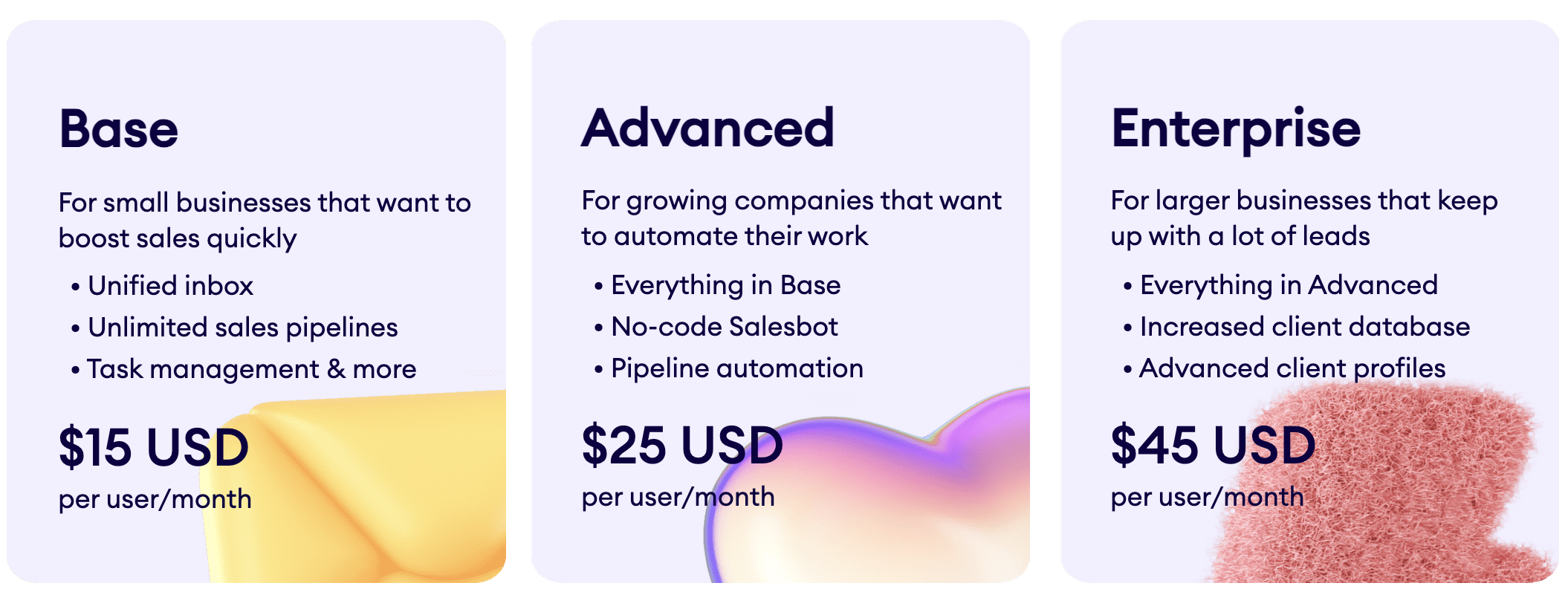Small Business CRM Cost: A Comprehensive Guide to Affordable Customer Relationship Management

Small Business CRM Cost: A Comprehensive Guide to Affordable Customer Relationship Management
Running a small business is a rollercoaster, isn’t it? One minute you’re celebrating a new client, the next you’re buried under a mountain of tasks. In today’s competitive landscape, managing customer relationships effectively can make or break your business. That’s where a Customer Relationship Management (CRM) system comes in. But the thought of implementing a CRM often brings up the question: How much will it cost?
This comprehensive guide delves into the world of small business CRM costs. We’ll explore the various pricing models, factors influencing the price, and tips to help you find a CRM solution that fits your budget without sacrificing essential features. Get ready to understand the true cost of a CRM and make an informed decision for your business.
Why Your Small Business Needs a CRM
Before we dive into the cost, let’s quickly revisit why a CRM is so crucial for small businesses. Think of it as the central nervous system of your customer interactions. It helps you:
- Organize Customer Data: Keep all customer information – contact details, purchase history, communication logs – in one centralized place.
- Improve Customer Service: Provide faster, more personalized support by having all the information at your fingertips.
- Boost Sales: Identify leads, track sales pipelines, and automate sales processes to close more deals.
- Enhance Marketing Efforts: Segment your audience, personalize marketing campaigns, and track the effectiveness of your marketing activities.
- Increase Efficiency: Automate repetitive tasks, saving time and allowing your team to focus on more strategic initiatives.
In essence, a CRM empowers you to build stronger customer relationships, drive sales, and streamline operations. That’s why understanding the associated costs is so important.
Understanding CRM Pricing Models
The cost of a CRM isn’t a one-size-fits-all number. It varies depending on the pricing model the provider uses. Here are the most common:
1. Subscription-Based Pricing (SaaS)
This is the most prevalent model, especially for small businesses. You pay a recurring fee (usually monthly or annually) to access the CRM software. The price often depends on the number of users, features included, and the level of support. This model is popular because it requires a lower upfront investment and offers flexibility to scale up or down based on your needs.
2. Per-User Pricing
A common approach within the subscription model. You pay a specific price for each user who has access to the CRM. This is a straightforward way to calculate costs, making it easy to budget. However, if you have a large team, the costs can add up quickly.
3. Tiered Pricing
CRM providers often offer different pricing tiers with varying features and user limits. The higher the tier, the more features you get, and the more users you can add. This allows you to choose a plan that aligns with your business needs and budget. You can often upgrade as your business grows.
4. Usage-Based Pricing
Some CRMs charge based on usage, such as the number of contacts stored, emails sent, or data storage used. This model can be cost-effective for businesses with fluctuating customer interactions, but it’s essential to monitor your usage carefully to avoid unexpected charges.
5. On-Premise Pricing
Less common for small businesses due to the higher upfront costs and technical expertise required, on-premise CRM involves purchasing a software license and installing the CRM on your own servers. This model gives you more control over your data but requires significant investment in hardware, IT staff, and ongoing maintenance.
6. Freemium Models
Some CRM providers offer a free version with limited features. This is a great way to get started and test the waters. As your needs grow, you can upgrade to a paid plan for more functionality. Be aware of the limitations of the free version to determine if it meets your business needs.
Factors Influencing Small Business CRM Costs
Several factors can impact the overall cost of a CRM system. Understanding these factors will help you make a more informed decision:
1. Number of Users
As mentioned earlier, the number of users you need to accommodate is a primary driver of cost, especially with per-user pricing. Carefully assess how many team members require access to the CRM and plan accordingly.
2. Features and Functionality
The more features you need, the higher the cost is likely to be. Basic CRM solutions offer core features like contact management and sales tracking. More advanced systems include features like marketing automation, lead scoring, e-commerce integration, and advanced analytics. Prioritize the features that are critical to your business and look for a CRM that provides them without unnecessary bloat.
3. Integrations
Do you need to integrate your CRM with other software, such as your email marketing platform, e-commerce store, or accounting software? Integrations can add to the overall cost, either through the CRM’s pricing or through the cost of third-party integration tools.
4. Customer Support
The level of customer support provided by the CRM vendor can influence the price. Some providers offer premium support packages with dedicated account managers and faster response times. While these packages come at an additional cost, they can be invaluable for businesses that require hands-on assistance.
5. Data Migration
If you’re switching from a previous CRM or spreadsheet, you’ll need to migrate your existing data into the new system. Some CRM providers offer data migration services, which can incur extra charges. Consider the time and effort involved in data migration when evaluating different CRM options.
6. Training and Onboarding
Implementing a new CRM requires training your team on how to use it effectively. Some CRM providers offer training resources, such as online tutorials, webinars, or in-person training sessions. The cost of training can vary depending on the type and amount of training you need.
7. Customization
Do you need to customize the CRM to meet your specific business needs? Customization can involve developing custom fields, workflows, or integrations. The cost of customization will depend on the complexity of the requirements and the development resources needed.
8. Scalability
Consider the scalability of the CRM. As your business grows, you’ll need a CRM that can accommodate more users, data, and features. Choose a CRM that offers flexible pricing plans and the ability to scale up or down as your needs change.
Estimating the Cost: Range and Examples
It’s challenging to give a precise cost without knowing your specific needs. However, here’s a general idea of what you can expect to pay for a small business CRM:
- Free CRM: Several free CRM options are available, offering basic features suitable for very small businesses or startups. These usually have limitations on users and features.
- Entry-Level CRM: $10-$50 per user per month. These solutions typically offer core CRM features like contact management, sales tracking, and basic reporting.
- Mid-Range CRM: $50-$150 per user per month. These offer more advanced features, such as marketing automation, sales pipeline management, and advanced reporting.
- Premium CRM: $150+ per user per month. These provide the most comprehensive features, including advanced analytics, custom integrations, and dedicated support.
Remember, these are just estimates. The actual cost will depend on the factors discussed earlier. Always get a quote from the CRM provider based on your specific requirements.
How to Reduce Small Business CRM Costs
You don’t have to break the bank to get a CRM that works for your business. Here are some tips to help you reduce costs:
- Start with a free or low-cost plan: If you’re just starting out, a free or basic plan can be a great way to get your feet wet.
- Assess your needs carefully: Determine the essential features you need and avoid paying for features you won’t use.
- Choose a CRM that integrates with your existing tools: This can save you money on third-party integration costs.
- Negotiate pricing: Don’t be afraid to negotiate with the CRM provider, especially if you’re committing to a long-term contract.
- Look for discounts: Many CRM providers offer discounts for annual subscriptions or for non-profit organizations.
- Consider open-source CRM options: Some open-source CRMs are available for free, but you’ll need technical expertise to set them up and maintain them.
- Train your team effectively: Proper training can help your team use the CRM efficiently, reducing the need for costly support.
- Review your plan regularly: As your business evolves, re-evaluate your CRM plan to ensure it still meets your needs and that you’re not overpaying for unnecessary features.
Popular CRM Solutions for Small Businesses
Here are some popular CRM solutions that are well-suited for small businesses:
- HubSpot CRM: A popular free CRM with excellent features and a user-friendly interface. Offers paid plans with more advanced functionality.
- Zoho CRM: A comprehensive CRM solution with a wide range of features and affordable pricing plans.
- Pipedrive: A sales-focused CRM with a visual sales pipeline and easy-to-use interface.
- Freshsales: An AI-powered CRM with features like lead scoring, sales automation, and phone integration.
- Insightly: A CRM designed for small businesses, offering features like project management and social media integration.
- Agile CRM: An all-in-one CRM with sales, marketing, and service automation features.
Remember to research and compare different CRM solutions to find the one that best fits your needs and budget.
The Hidden Costs to Consider
While the monthly or annual subscription fee is a primary cost, it’s essential to consider other potential expenses that can add to the overall cost of a CRM system. These are often called “hidden costs” because they might not be immediately apparent when you first evaluate a CRM. Knowing about these potential expenses can help you create a more accurate budget and avoid unexpected financial burdens.
- Implementation Costs: This includes the time and resources required to set up the CRM. This can involve data migration, system configuration, and integrating with other software. Some CRM providers offer implementation services for an additional fee.
- Training Costs: As mentioned earlier, training your team to use the CRM effectively is crucial. This can involve the cost of internal training, external training courses, or online tutorials.
- Integration Costs: Integrating your CRM with other software, such as your email marketing platform, accounting software, or e-commerce platform, can incur additional costs. This may involve the cost of third-party integration tools or custom development.
- Customization Costs: If you need to customize the CRM to meet your specific business requirements, such as developing custom fields, workflows, or integrations, this can add to the overall cost. The cost of customization will depend on the complexity of the requirements and the development resources needed.
- Data Migration Costs: Migrating your existing data from your old CRM or spreadsheet to the new CRM can be time-consuming and may require the assistance of a data migration specialist, which can add to the cost.
- Ongoing Maintenance Costs: While not always a significant expense, you may incur ongoing maintenance costs, such as the cost of IT support or the cost of updating your CRM software.
- Opportunity Cost: This is the cost of the time your team spends learning and implementing the CRM. It’s the value of the other tasks your team could have been doing during this time.
By considering these hidden costs, you can create a more comprehensive budget and avoid any unpleasant surprises down the road.
Making the Right Choice: Key Considerations
Choosing the right CRM for your small business is a significant decision. Here are some key considerations to guide you through the selection process:
- Define Your Needs: Before you start evaluating CRM solutions, clearly define your business needs and objectives. What problems are you trying to solve with a CRM? What features are essential? What are your goals for customer relationship management?
- Set a Budget: Determine how much you’re willing to spend on a CRM. Consider not only the subscription fees but also the potential hidden costs, such as implementation, training, and customization.
- Research Different CRM Solutions: Explore different CRM solutions and compare their features, pricing, and reviews. Read online reviews and testimonials to get insights from other small businesses.
- Consider Your Team’s Technical Skills: Choose a CRM that your team can easily learn and use. If your team is not tech-savvy, opt for a user-friendly solution with intuitive features.
- Evaluate Integrations: Consider the integrations you need to connect your CRM with other software, such as your email marketing platform, e-commerce store, or accounting software. Make sure the CRM offers the integrations you need.
- Test the CRM: Many CRM providers offer free trials or demos. Take advantage of these opportunities to test the CRM and see if it’s a good fit for your business.
- Prioritize Scalability: Choose a CRM that can scale with your business as it grows. Make sure the CRM offers flexible pricing plans and the ability to add more users and features as needed.
- Consider Customer Support: Evaluate the level of customer support offered by the CRM provider. Make sure you have access to the support you need, such as online documentation, email support, or phone support.
- Read Reviews and Testimonials: Gain insights from other small businesses that use the CRM by reading online reviews and testimonials. This can help you understand the pros and cons of each solution.
- Don’t Overspend: Avoid paying for features you won’t use. Choose a CRM that offers the features you need at a price you can afford.
The Long-Term Value of CRM
While the initial cost of a CRM is a significant factor, it’s essential to consider the long-term value it can bring to your business. A well-implemented CRM can:
- Increase Sales: By helping you identify and nurture leads, manage your sales pipeline, and close more deals.
- Improve Customer Retention: By helping you build stronger customer relationships and provide better customer service.
- Enhance Marketing ROI: By helping you target your marketing efforts more effectively and track the results.
- Boost Efficiency: By automating repetitive tasks and streamlining your business processes.
- Provide Valuable Insights: By providing you with data and analytics to help you make better business decisions.
When evaluating CRM costs, focus on the return on investment (ROI). A CRM that helps you generate more sales, reduce costs, and improve customer satisfaction can quickly pay for itself. Think of it as an investment in the future of your business.
Final Thoughts
Choosing the right CRM solution is a crucial step for any small business. By understanding the various pricing models, factors influencing costs, and the long-term value of a CRM, you can make an informed decision and find a solution that fits your budget and business needs. Remember to carefully evaluate your needs, set a realistic budget, and research different CRM options before making a final decision. With the right CRM in place, you can build stronger customer relationships, drive sales, and achieve sustainable growth.
Don’t be afraid to start small. You can always upgrade your CRM plan as your business grows and your needs evolve. The most important thing is to get started and start leveraging the power of CRM to transform your customer relationships.



